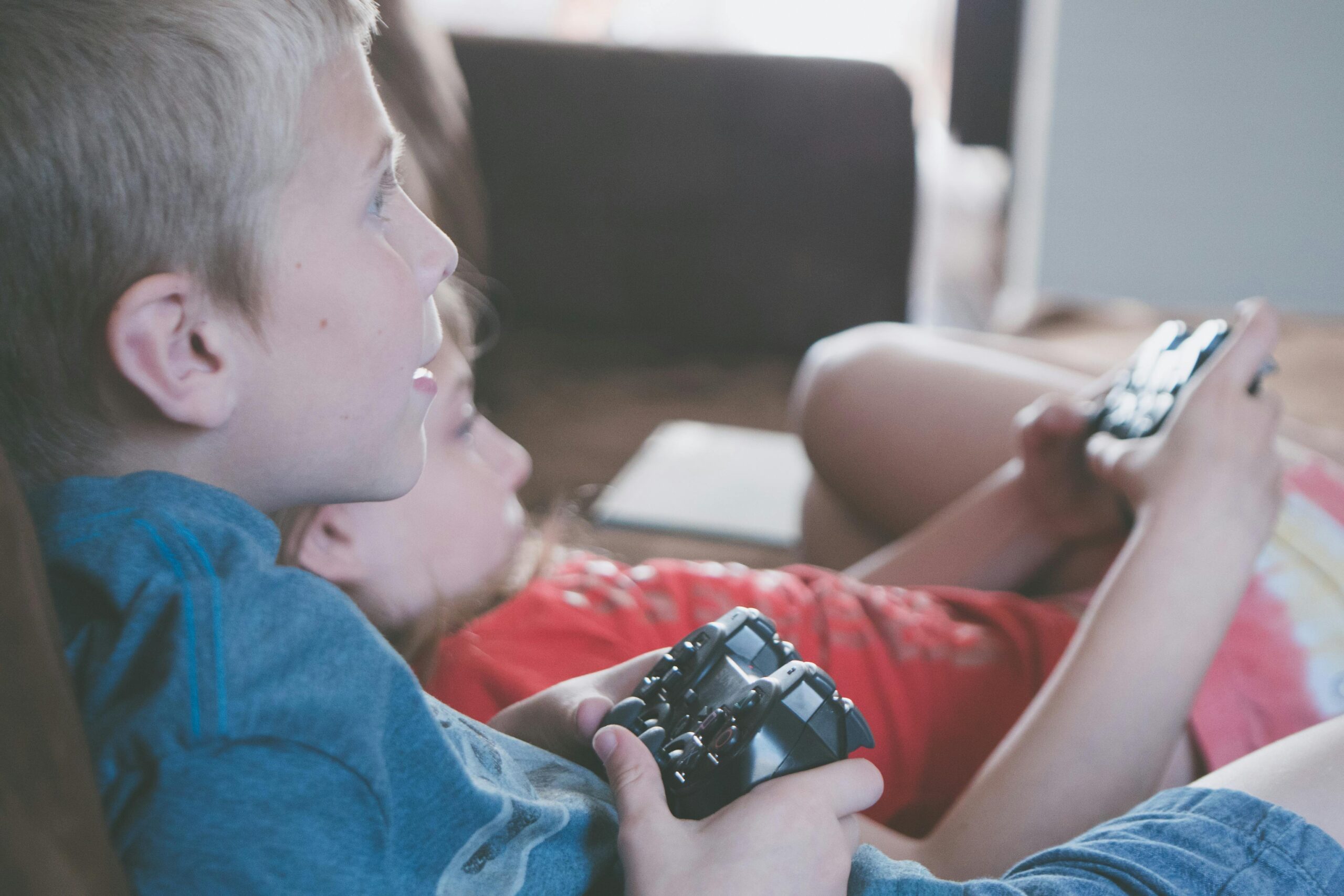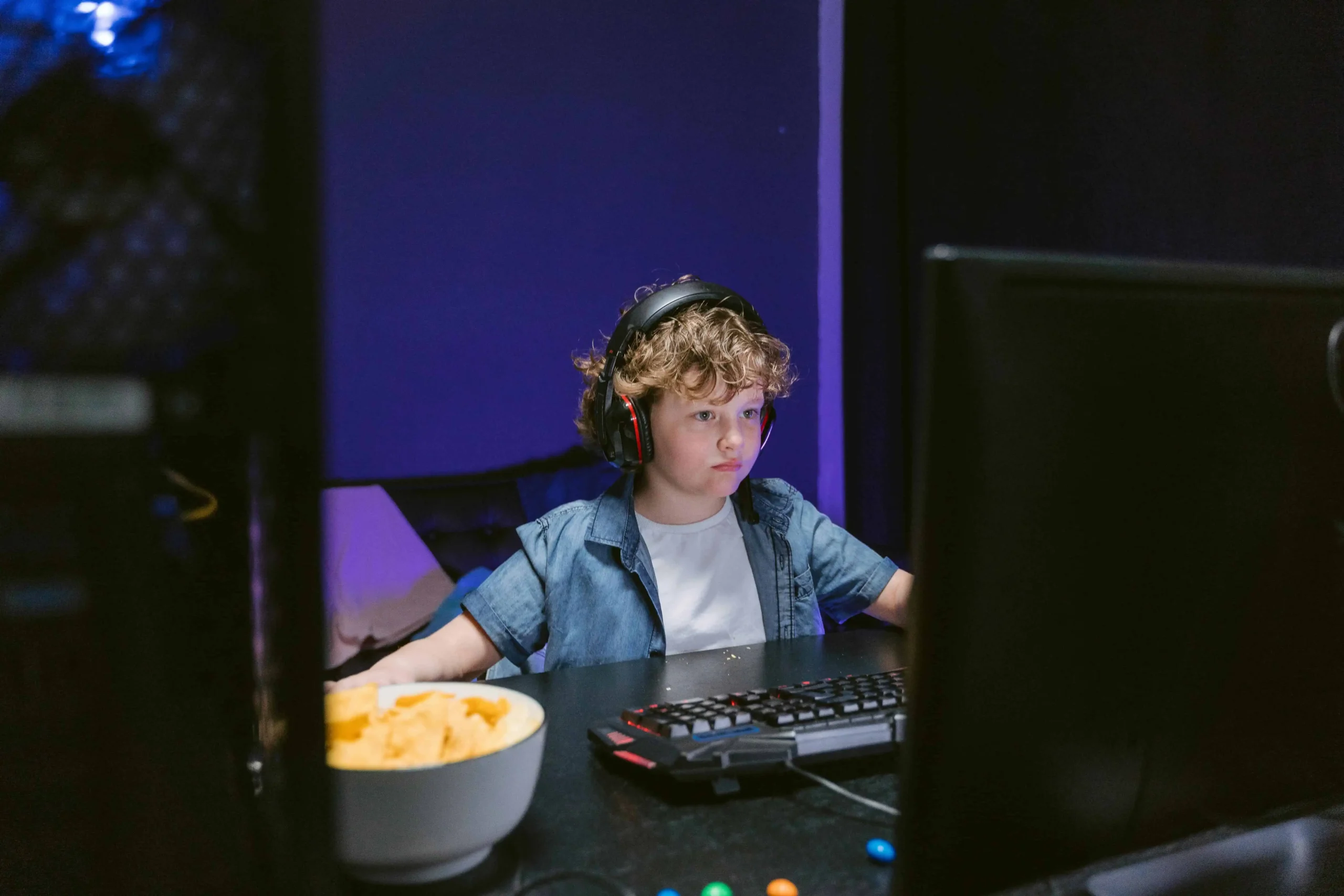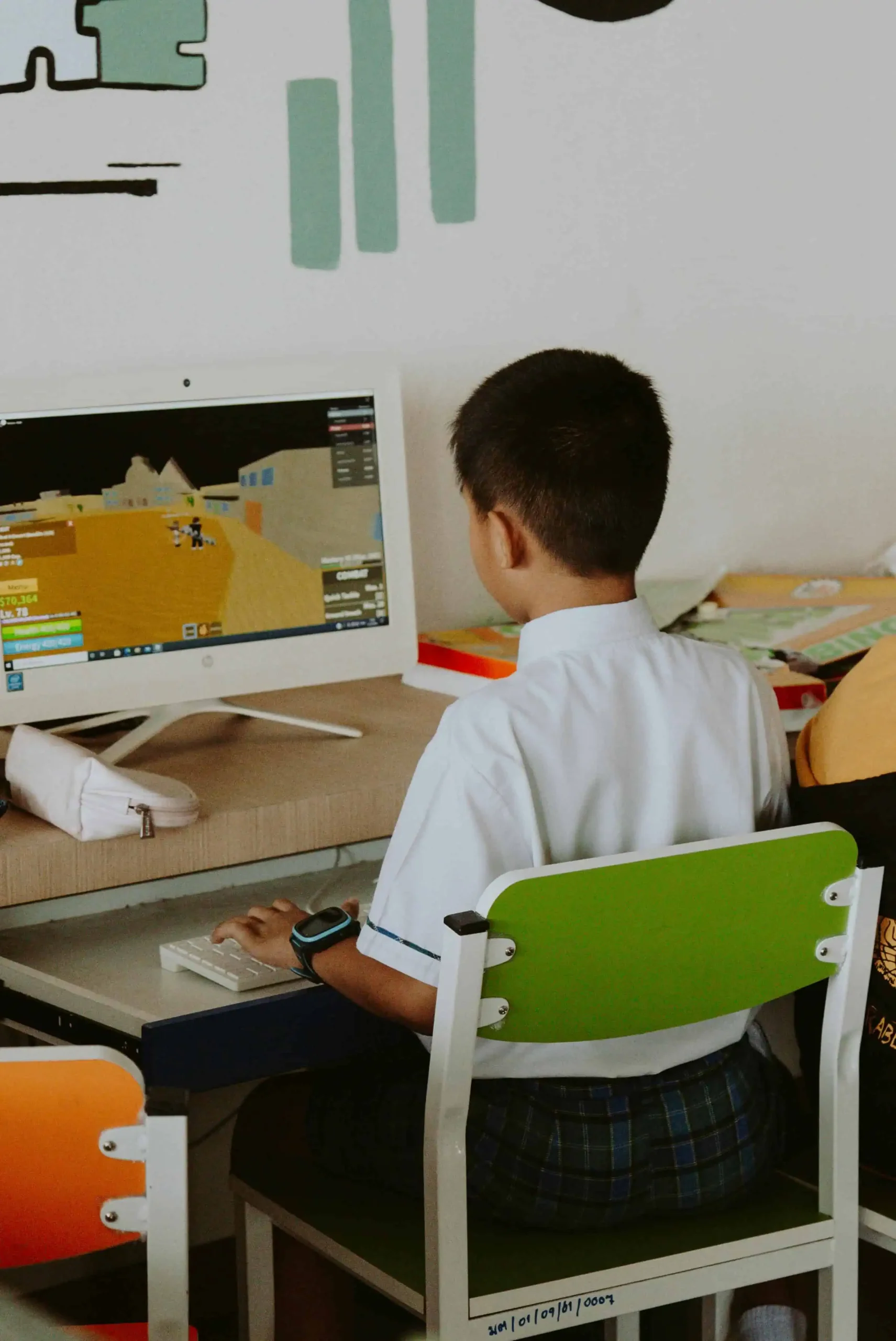Is Your Child Addicted to Screens?
Many parents worry about the amount of time their children spend in front of screens, whether it's a smartphone, TV, or a gaming console like PlayStation. Numerous studies highlight the risks of excessive screen use, such as sleep deprivation, reduced social skills, delayed speech, and decreased daily functionality. Screen addiction is often associated with ADHD, depression, and anxiety disorders.

Why does this happen?
Because in the digital world, everyone feels successful and capable, receiving constant rewards. However, in the real world, we tend to remind children of their mistakes and ignore their achievements.
Are we inadvertently leading our children into this trap?
In this article, I will present how to identify the signs of screen addiction in your children and how you can use the "psychology" of video games to your advantage!

Signs Your Child May Be Addicted to Screens
1. Difficulty Detaching from Screens
If you have tried to set limits on screen time, but your child resists and becomes upset, it may be a sign of addiction.
After a while, a child's brain becomes attached to the captivating content provided by the screen, losing track of time.
2. Loss of Interest in Other Activities
If activities like reading, drawing, playing, or sports no longer excite your child, and all they care about is screen time, this may be a problem.
They might start using the word “bored” frequently and gradually lose interest in hobbies they once enjoyed.
3. Preoccupation with Screens Even When Not in Use
If your child talks about screen-based activities all the time and counts down the hours until they can use a device again, it may indicate addiction.
Screen time is taking up a significant portion of their daily thoughts and it isn’t healthy.
4. Interference with Socialization
Devices can encourage social interaction, but they can also have the opposite effect.
Devices can encourage social interaction, but they can also have the opposite effect.
Does the device accompany them to the dinner table or when a relative tries to engage in conversation? Are they reluctant to play with friends because they want more screen time? When screens start affecting family activities and social relationships, they become problematic.
5. Causing Serious Family Problems
Are there frequent arguments and conflicts over screen use?
Is your child's behaviour increasingly problematic, possibly influenced by something they saw on a screen? Do you no longer have conversations or know what is going on in your child's life? This is signalling an unhealthy relationship between your child and screens.
6. Withdrawal Symptoms When Not Using Screens
Does your child become extremely irritable when it's time to stop using devices?
This could be a sign of withdrawal, similar to other forms of addiction, and may include mood swings, irritability, headaches, insomnia, depression, and anxiety.
7. Deceptive Behavior About Screen Use
Do you find your child using a device under the covers at night despite knowing it's bedtime, or lying about how much time they spend on screens?
This is a clear sign that a conversation about the risks and setting boundaries is needed.
8. Screens Are the Only Source of Comfort
If the only thing that can lift your child's mood after a tough day is a video game or YouTube, research shows this could indicate addiction.
If the only thing that can lift your child's mood after a tough day is a video game or YouTube, research shows this could indicate addiction.
If you recognize several of these signs in your child, it might be a good idea to review device usage at home and seek guidance from a specialist.

How to Use the "Psychology" of Video Games to Your Advantage
After reading the above, you may think video games are a bad influence on your child. However, have you considered that they can teach us what children need to thrive? Video games often follow a reward pattern, acknowledging every small success and making players feel accomplished throughout the game. If a rule is broken, the game might temporarily pause or impose a “cool down” period. This is different from the real world, where parents often highlight their children's mistakes while positive behavior goes unnoticed.
Integrating These Practices into Daily Life
- Frequent and Immediate Praise: Focus on recognizing and rewarding positive behaviors. Acknowledge every small success to encourage continued positive behavior.
- Create a Reward System: Like in video games, establish a system where children can earn "points" or "rewards" for good behavior, school success, or positive actions.
- Set Clear and Fair Boundaries: Explain the rules and consequences for screen use and apply them consistently but fairly.
- Encourage Other Activities: Offer alternative activities like sports, painting, or music that can be equally engaging.
- Strengthen Socialization: Promote social interactions outside of screen time through playdates, group activities, or family outings.
- Monitor Behavioral Changes: If you notice changes like increased anxiety or isolation, consult a specialist for early intervention.

Using technology and screens is unavoidable in today's world, but with the right approach and boundaries, we can ensure our children benefit from them without falling into addiction. Balance is key, and our support and guidance are essential for the healthy development of our children.
